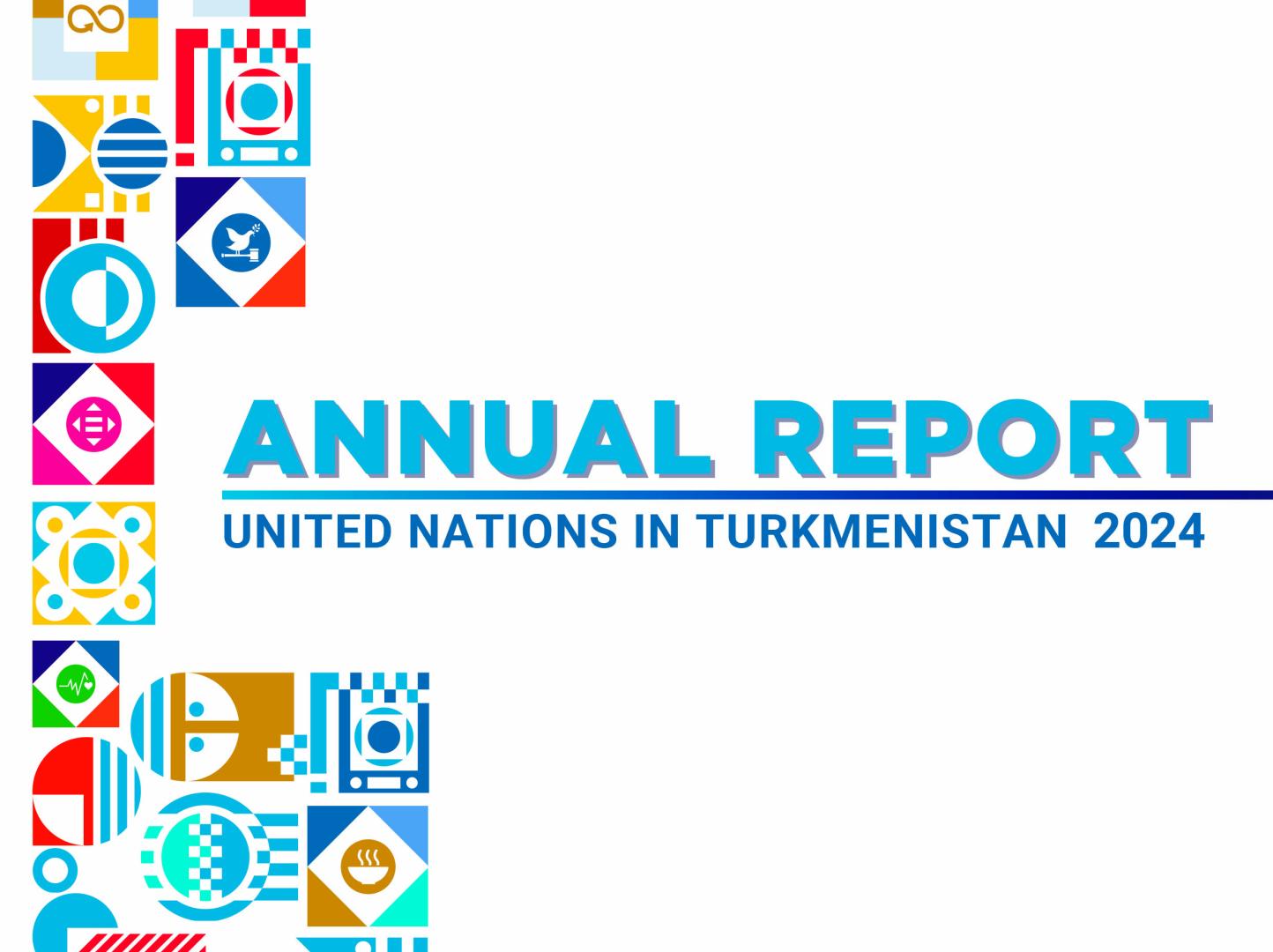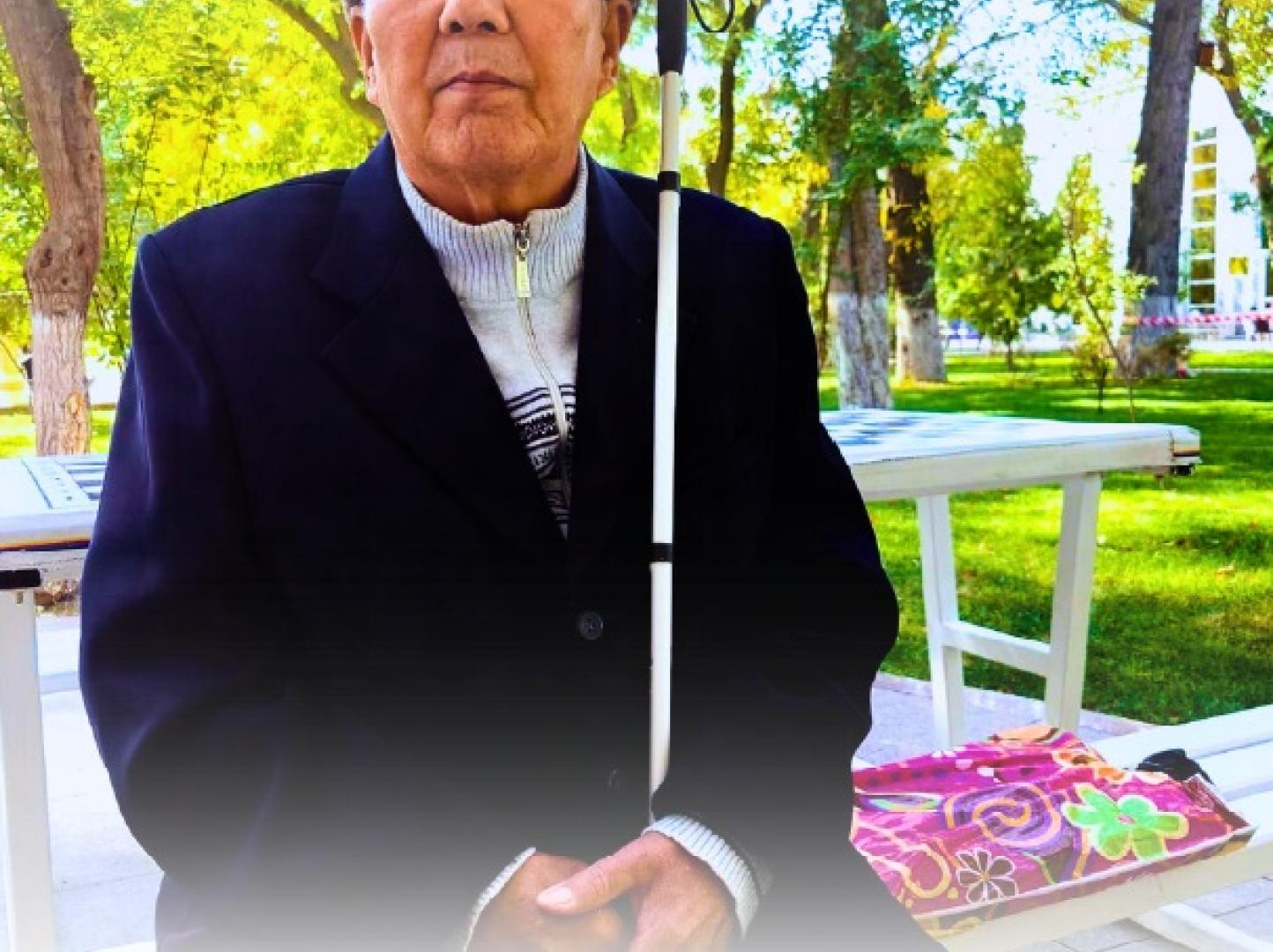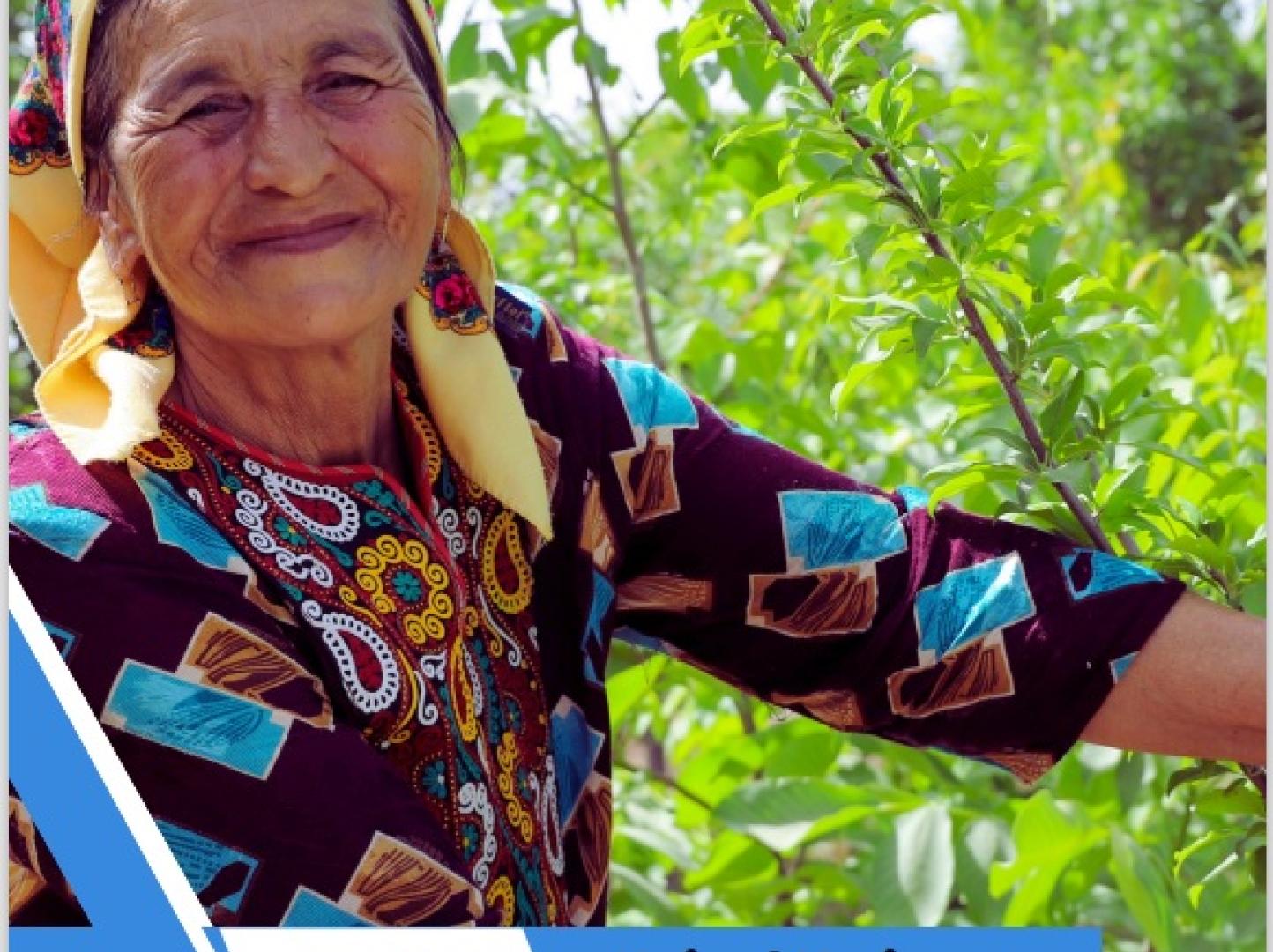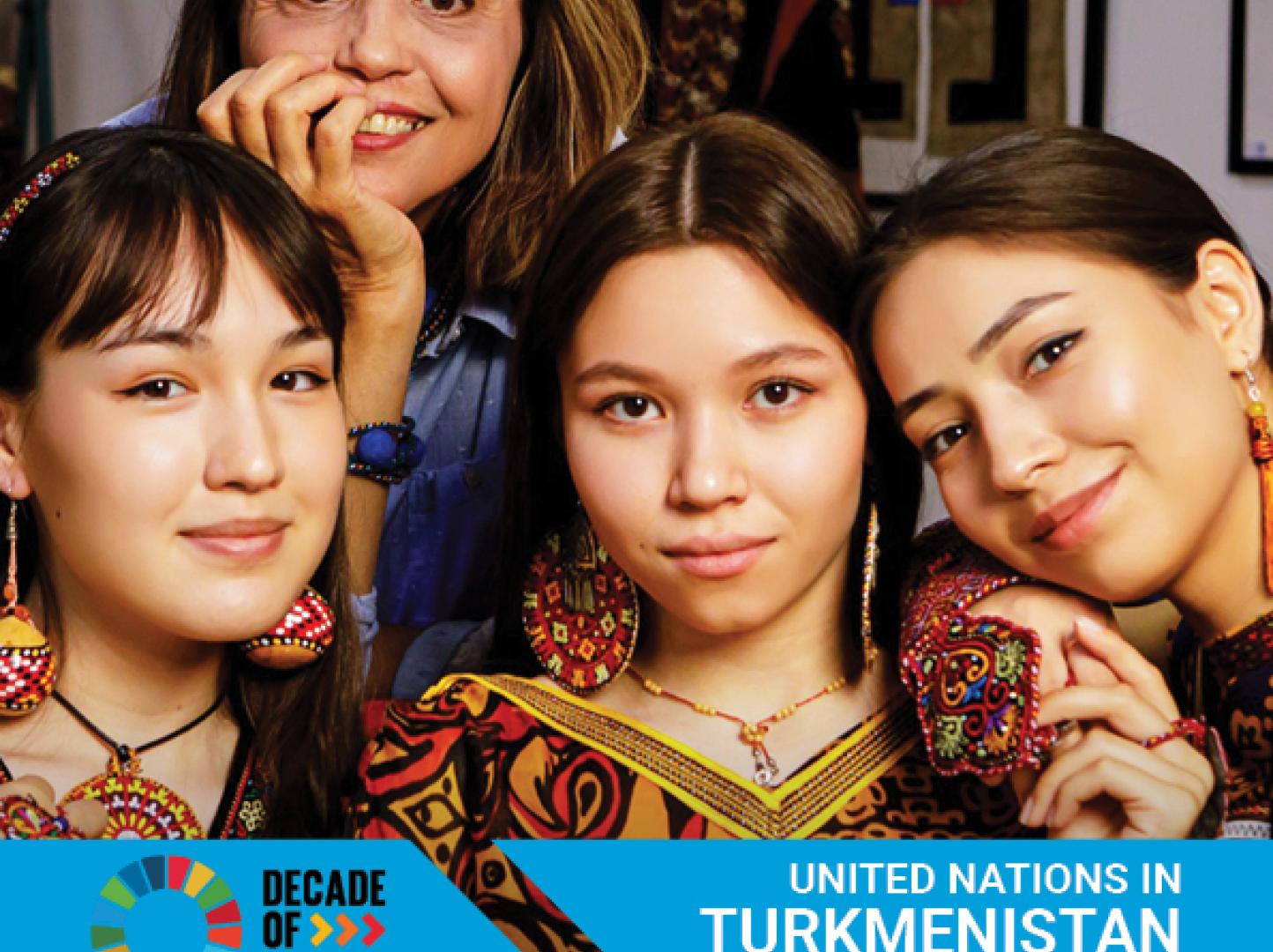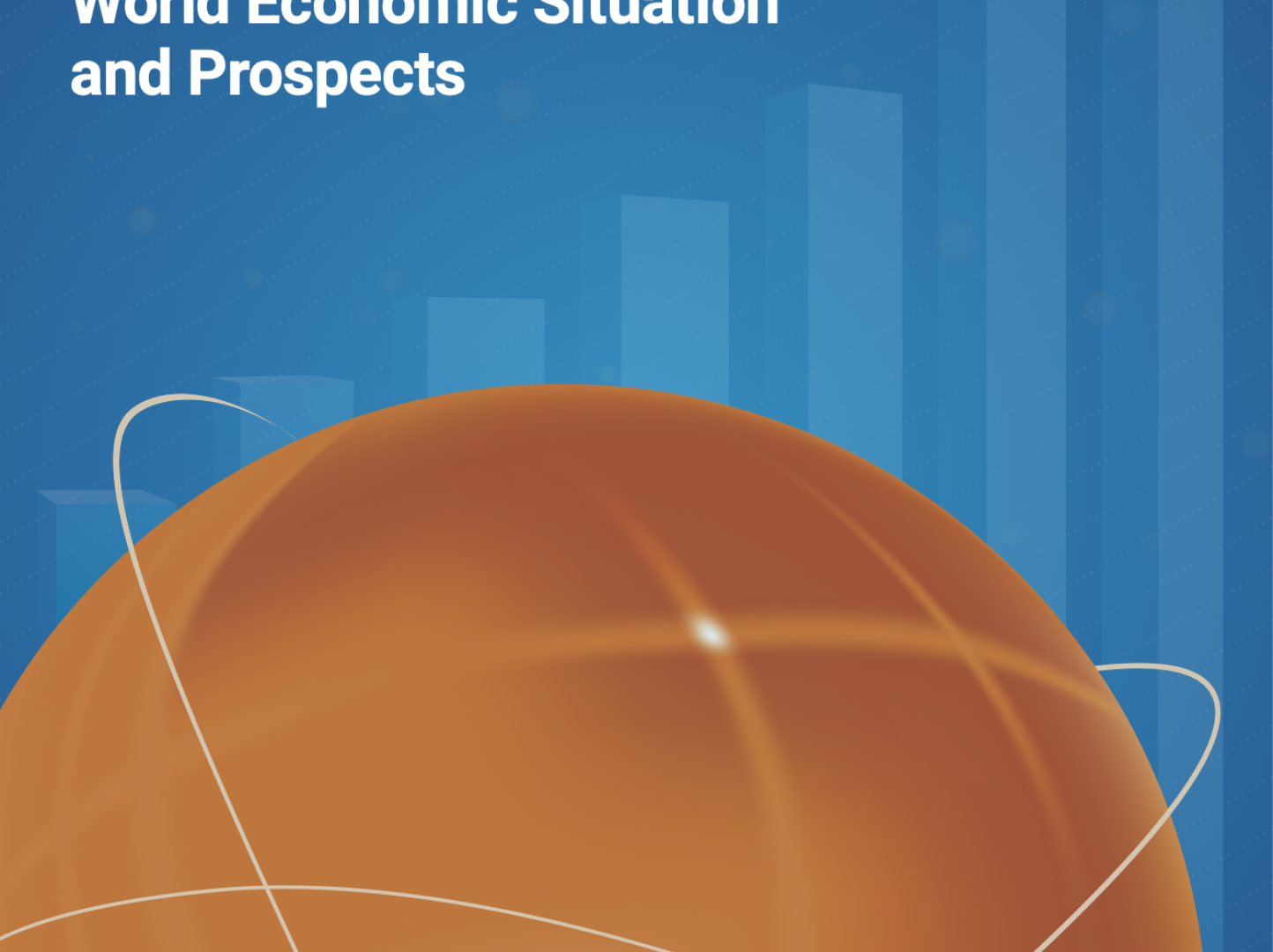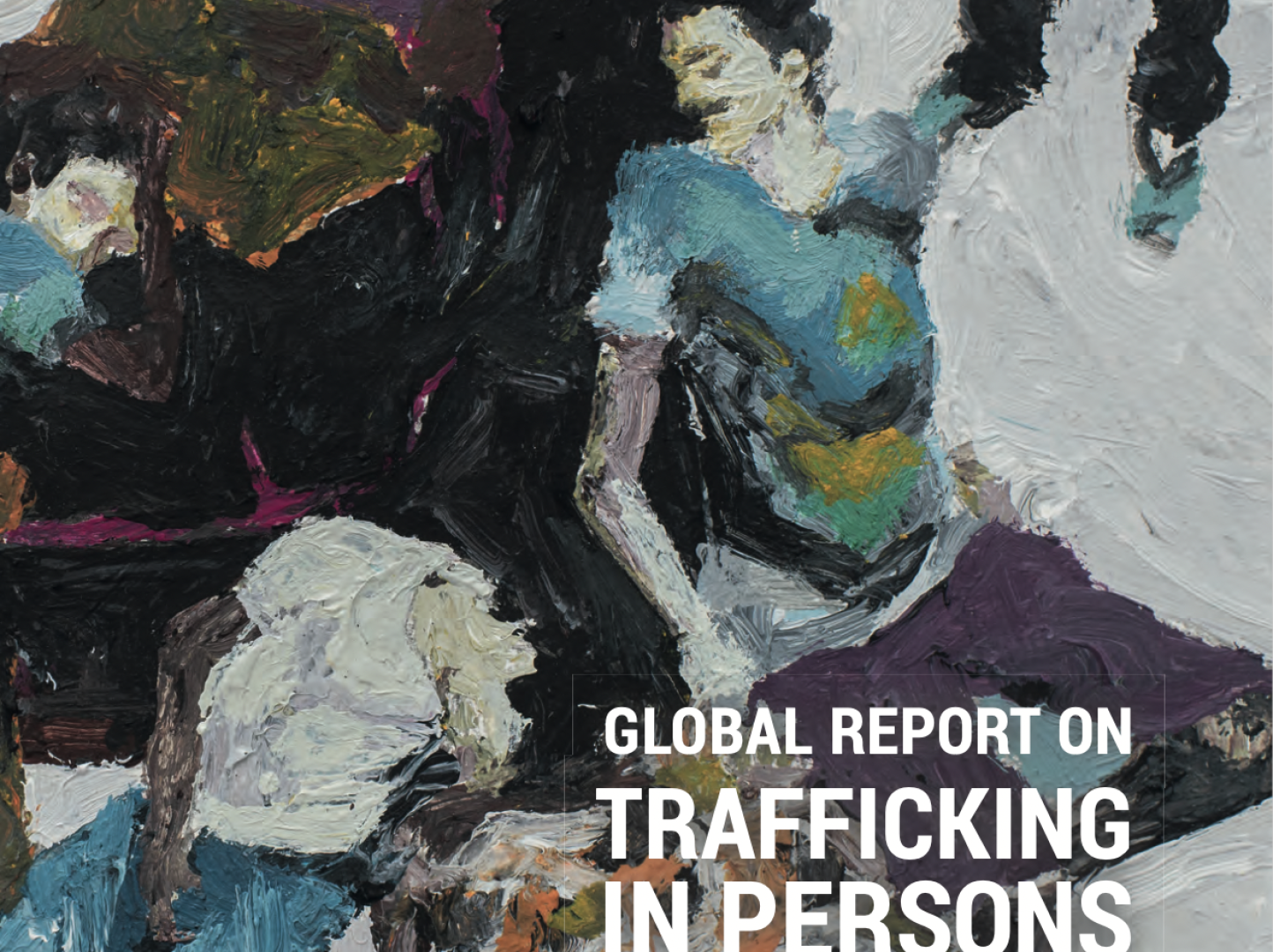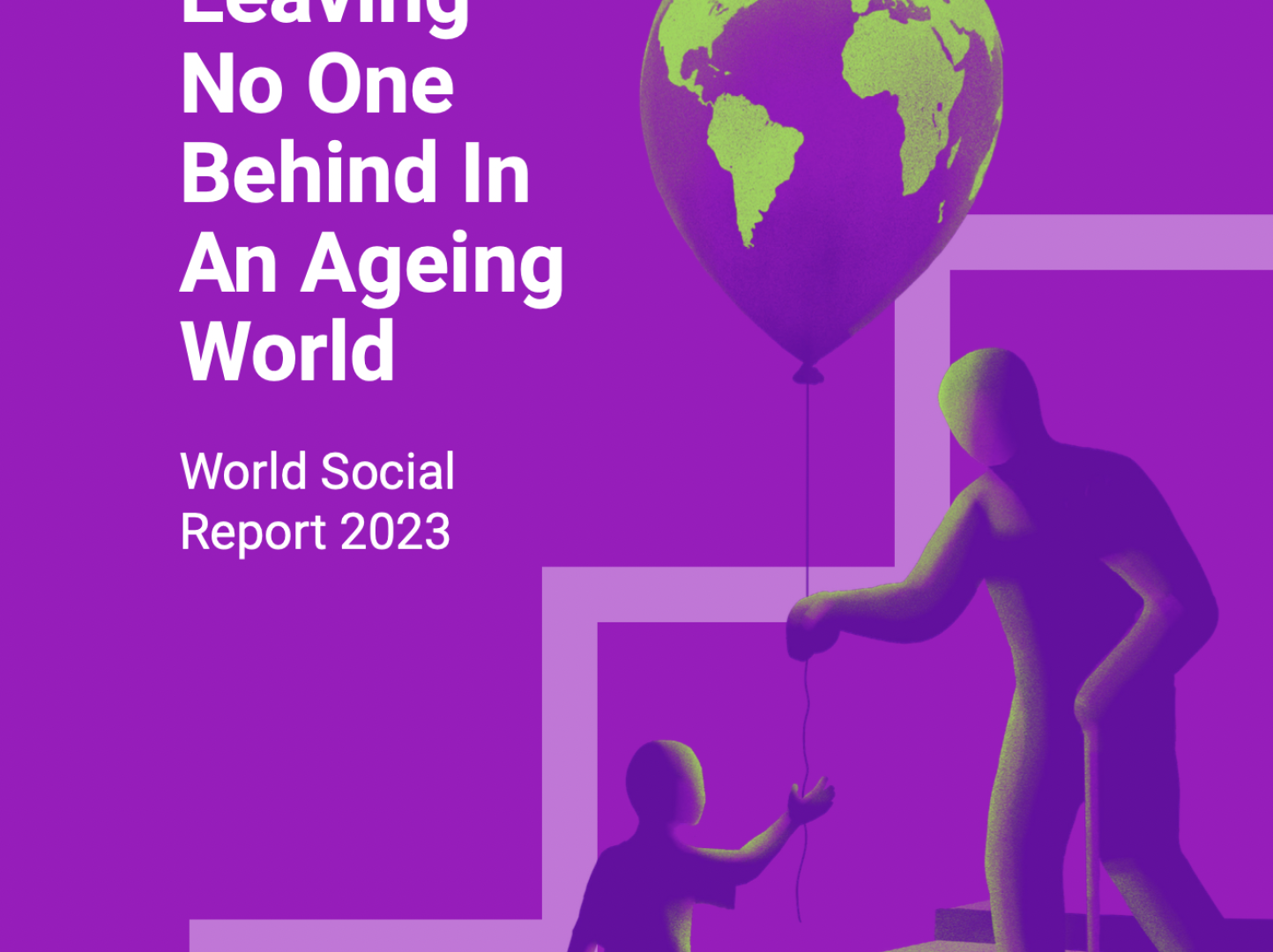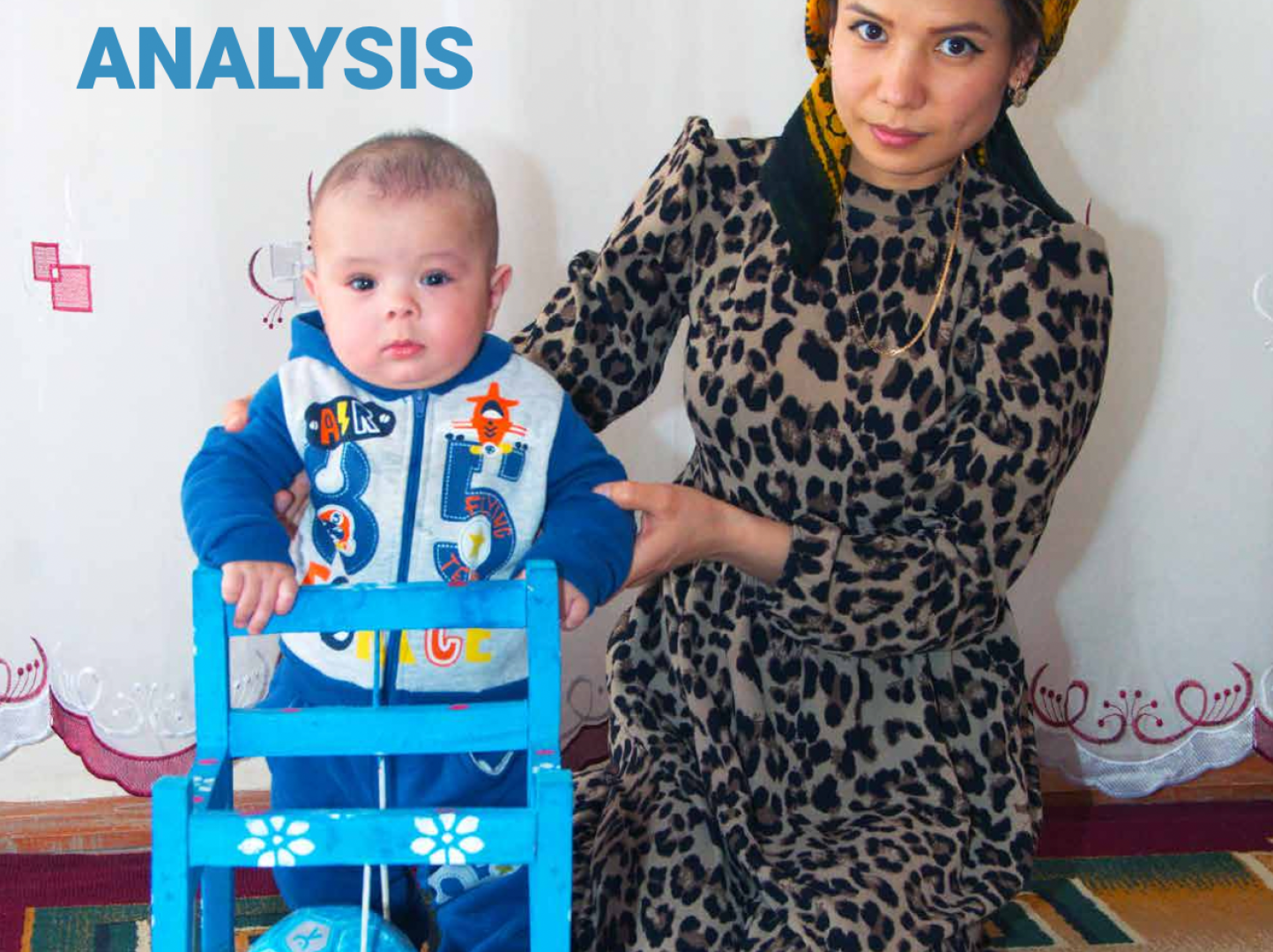Latest
Speech
31 December 2025
Advancing Peace, Trust, and Sustainable Development: The UN–Turkmenistan Partnership in 2025
Learn more
Speech
31 December 2025
THE SECRETARY-GENERAL’S NEW YEAR’S MESSAGE
Learn more
Press Release
25 December 2025
Turkmenistan and the United Nations: Advancing Peace, Trust, and Sustainable Development Together
Learn more
Latest
The Sustainable Development Goals in Turkmenistan
The Sustainable Development Goals are a global call to action to end poverty, protect the earth’s environment and climate, and ensure that people everywhere can enjoy peace and prosperity. These are the goals the UN is working on in Turkmenistan:
Press Release
26 November 2025
UNCT Turkmenistan completes horizon scanning country analysis supported with foresight training to strengthen anticipatory, SDG linked decision making
The effort was led by the UN Resident Coordinator’s Office (RCO) as a deliberate investment in UN 2.0 skills, with RCO Economist Uladzimir Valetka co‑delivering the training together with Andrew Morton, former UNEP and currently a UN Energy foresight consultant.UN Futures Lab (2023) defines foresight as “an approach for systematically thinking and acting in a long term and anticipatory way under conditions of uncertainty.” Building on this approach, UNCT Turkmenistan has institutionalized a regular horizon‑scanning and rapid foresight process to inform its United Nations Sustainable Development Cooperation Framework (UNSDCF) and joint workplans. From one‑off exercise to an institutional foresight cycleOver the past 18 months, UNCT Turkmenistan has moved from treating foresight as a one‑off exercise at its April 2024 UNCT retreat focused on the 2026–2030 Cooperation Framework rollout roadmap to establishing a regular horizon‑scanning practice, validated through UN Country Analysis Task Force and Monitoring, Evaluation and Learning (MEL) Group, piloted via the Rapid Foresight Tool, and formally endorsed by UNCT for integration into future retreats with regular UNCT sessions. The Rapid Foresight Tool, developed within the UNCA function, enables UNCT to scan for signals of change, prioritize those with the greatest impact on vulnerable groups and SDG transitions, and agree concrete “If–Then” actions linked to UNSDCF performance through its evaluation criteria.Foresight findings: a warning signal and a window of opportunityThe foresight training was anchored in real‑world analysis of Turkmenistan’s energy‑dependent development trajectory, with Morton’s nearly finalized energy foresight study on hydrocarbon exports and revenues feeding directly into UNCT horizon‑scanning discussions. Commenting on the preliminary results, Andrew Morton said “despite revealed predominantly worrying trends by 2030 and a likely scenario of slow decline by 2050 driven by over‑reliance on energy export revenues and the “petrostate curse”, foresight analysis for Turkmenistan identified a critical opportunity for major policy reforms along two plausible alternative pathways – either continued petrostate status with much better public spending or diversification with much better spending. Both pathways require significant change and targeted advocacy and adaptation strategies for particularly vulnerable rural populations and youth”.The analysis underscores that business‑as‑usual is not sustainable, but also that policy choices made in the coming years can still alter the trajectory, especially if they prioritize diversification, the quality of public spending and protection of those most at risk.Foresight as more advanced way of country analysisFor UNCT Turkmenistan, foresight is not an abstract exercise, but a way to upgrade how evidence is used for joint decision‑making and to ensure that no one is left behind. Reflecting on the foresight training and analytical process, Uladzimir Valetka, RCO Economist, noted: “The foresight horizon‑scanning approach stimulates systemic thinking, clarifies interlinkages between prioritized SDG transitioonss, and enables focused attention on the most vulnerable populations and financing gaps; it is a significant improvement over previous methods, making country analysis more useful both for the UNCT’s work and for our joint efforts with the Government.”The new approach strengthens systems thinking and SDG interlinkages by mapping how trends in energy, social protection, jobs, climate, food security and water management, peace and digitalization interact and create trade‑offs and synergies; it deepens LNOB and multidimensional risk analysis by systematically identifying which groups – such as rural households, youth, women, persons with disabilities, older people and returning migrants – are most affected by emerging risks; and it enhances accountability and adaptiveness by linking foresight discussions directly to UNSDCF joint workplan reviews and documenting clear, time‑bound follow‑up actions. Next stepsFollowing completion of the country analysis update cycle, UNCT Turkmenistan will run horizon‑scanning and foresight sessions as part of the UN Country Analysis function, using the Rapid Foresight Tool in UNCT retreats and quarterly meetings to guide decisions in joint programming. Foresight outputs – including signals, drivers, implications and If–Then action cards – will feed into new UNSDCF implementation, risk management and SDG financing dialogue with national counterparts and partners, while the RCO and UNCT explore opportunities to share insights and methods with Government, civil society, academia and development partners, in line with national ownership and demand.By institutionalizing foresight, UNCT Turkmenistan is operationalizing the UN 2.0 commitment to anticipatory, data‑driven and systems‑oriented cooperation, aimed at safeguarding development gains and supporting a more resilient, diversified and inclusive future for all people in Turkmenistan.
1 of 5
Press Release
25 November 2025
United Nations Hosts Information Session on Young Professionals Programme in Turkmenistan
Ms. Rose Lagrotte, a staff member representing UN Volunteers and specializing in climate issues facilitated the session jointly with Mr.Jakub Wawrzyniak, UN intern, and made a comprehensive presentation followed by a Q&A segment. Participants learned about the purpose and goals of YPP, eligibility criteria, application process, written examination and interview stages, as well as career growth opportunities within the UN system.The YPP offers young professionals a unique chance to contribute to the UN’s global mission in areas such as peace, development, human rights, and humanitarian assistance. Successful candidates join the UN Secretariat as international civil servants, gaining access to professional development, mobility across duty stations, and opportunities to make a global impact. The event brought together students from leading universities, SDG Youth Ambassadors, and young specialists in communications and journalism. It was also accessible to a wider audience through online registration.Applications for the 2025 YPP cycle are open until 14 December 2025 (11:59 PM New York time). Interested candidates must meet the eligibility requirements, including being nationals of participating countries, aged 32 or younger, holding at least a first-level university degree, and fluent in English or French.For more information on YPP and the application process, please visit:
careers.un.org/ypp
careers.un.org/ypp
1 of 5
Press Release
24 November 2025
Rising Heat, Rising Risk: Regional Policy Actions
Higher-income areas usually lie in cooler, greener neighbourhoods, so the hottest districts are often the poorest – adding to social inequality. In the city of Bandung, Indonesia, for example, a study shows that there can be temperature differences of up to 7°C between the hottest and coolest parts of town.Future prospects for the region will depend critically on the progress of climate change. Under a high-emissions scenario, we project that extreme heat will be more frequent, intense and widespread — what were once occasional events will become seasonal or even year-round phenomena. Rising temperatures also affect other parts of the Earth’s ecosystem – notably glacial melt. Warming in the Arctic can influence weather, precipitation and glacial behaviour across Central and South Asia. Globally, this century, glaciers have lost about 5 per cent of their volume. By 2060, under a high-emissions scenario, the Islamic Republic of Iran, Mongolia, Myanmar, Türkiye and Uzbekistan could lose more than 70 per cent of their glacier mass. These phenomena also add to sea-level rise, raising existential risks for some countries in the Pacific.To tackle these challenges, countries will meet this week at the United Nations Economic and Social Commission for Asia and the Pacific to consider opportunities to integrate heat risk into early warning systems and development planning. The key priority is to move from reactive heat risk management to long-term, science-informed strategies. Policy actions are needed at local, national, regional and global levels. This is the International Year of Glacial Preservation, which offers a critical opportunity for collective action. At the local level, nature-based solutions such as trees lining streets, urban parks, green roofs and wetland conservation help lower urban temperatures. These measures can increase shade, promote evapotranspiration and act as heat sinks, reducing heat island effects. Vegetation and tree canopies can reduce peak summer temperatures by up to 5°C. While effects vary by vegetation type and density, green roofs and walls in Singapore, for example, have been shown to reduce surface temperatures by up to 17°C and ambient air temperatures by as much as 5°C.Countries in Asia and the Pacific can significantly reduce heat-related illness, mortality and disruptions to livelihoods by building heat-ready, multi-hazard early warning systems. Expanding heat-health warning systems in just 57 countries could save approximately 100,000 lives each year.To support countries, ESCAP plans to scale-up climate-responsive and inclusive social protection schemes that include technical support for heat-specific social protection provisions that ensure heat readiness, along with income and non-income support, especially for the poor living in densely populated urban areas. Additionally, recognizing the benefits of nature-based solutions, our efforts can strengthen collaboration among national governments, municipalities and local communities to create green, cooling cross-border corridors.These passages can chill the air, reduce surface temperatures and provide buffers against desertification, land degradation, drought and sand and dust storms.Finally, we must push the use of innovative space solutions to strengthen heat preparedness in early warning systems. Despite the proven benefits of early warning systems, coverage remains incomplete. Only 54 per cent of global meteorological services issue warnings for extreme temperatures, and even fewer provide alerts for heatwaves or thermal stress. In Nepal, for example, a community survey revealed that about three-quarters of respondents from vulnerable groups had not received any heat alerts.ESCAP can leverage existing cooperation to share Earth observation data and technical expertise for mapping and monitoring heat exposure and city vulnerability to urban heat island effects. This information enables greater precision in forecasting and quantifying heat risk, as well as for issuing timely heat alerts.The Asia-Pacific region has considerable experience in managing cascading disasters. But the rising threat of extreme heat adds a new level of urgency. Every country needs to act now to meet the scale of this evolving disaster risk landscape and to turbocharge regional cooperation. ESCAP stands ready to support countries in these endeavours – as we prepare for an ever-hotter world. Armida Salsiah Alisjahbana, Under-Secretary-General of the United Nations and Executive Secretary of the Economic and Social Commission for Asia and the Pacific (ESCAP)
1 of 5
Press Release
19 November 2025
Boost for Caspian Sea protection as new environmental rules come into force
Geneva, 18 November 2025 – Major new infrastructure planned around the Caspian Sea will be legally required to meet transboundary environmental standards, as a new Protocol enters into force today under the Framework Convention for the Protection of the Marine Environment of the Caspian Sea – known as the Tehran Convention – hosted by the UN Environment Programme (UNEP). Upon the request of any Caspian littoral state, the Protocol on Environmental Impact Assessment will require the potential effects of major infrastructure projects in another state to be assessed before they get underway. The types of infrastructure covered include transport, oil and gas extraction, tourism, and urban development. For example, new motorways, major oil refineries and power stations, pipelines, large dams, and major transfers of water resources — other than drinking water — are all covered by the Protocol. If requested by an affected littoral state, an impact assessment will be carried out, and its results must be made publicly available. The assessments will be carried out at the national level and will cover the marine environment of the Caspian Sea, including water level fluctuations and pollution from land-based sources. The new infrastructure will then require a green light from the affected country before construction can continue. The Caspian region is a major trade artery between Europe and Asia, driving significant new infrastructure development. Between 2014 and 2024, EU imports from China more than doubled and exports grew by 47%, for example — illustrating the importance of strong cross-border environmental safeguards.“Today marks an important step in protecting the Caspian Sea,” said Arnold Kreilhuber, the UNEP Europe Director. “Through this Protocol, Caspian countries are sending a clear message that economic growth and environmental protection must be balanced – collaboration among states is key to achieving this.”If the joint Environmental Impact Assessment procedure is triggered by a littoral state, the role of the Tehran Convention Secretariat will be to ensure information flow, prepare reports, and promote cooperation and technical assistance. As the Caspian region undergoes rapid economic development, the Protocol brings the region in line with international best practices on impact assessments and ensures that potential cross-border risks are identified and addressed early in the decision-making process. The Protocol on Environmental Impact Assessment in a Transboundary Context is the fourth protocol designed to protect the Caspian under the Framework Convention for the Protection of the Marine Environment of the Caspian Sea. In 2011, the littoral states adopted the Protocol Concerning Regional Preparedness, Response and Cooperation in Combating Oil Pollution Incidents (the Aktau Protocol). In 2012, the Protocol for the Protection of the Caspian Sea Against Pollution from Land-based Sources and Activities (the Moscow Protocol) was adopted. The Protocol for the Conservation of Biological Diversity (Ashgabat Protocol) was adopted by littoral states in 2014. A fifth protocol is currently under negotiation and will address monitoring, assessment, and information exchange.NOTES TO EDITORSAbout the Tehran ConventionThe Secretariat of the Framework Convention for the Protection of the Marine Environment of the Caspian Sea, also referred to as the Tehran Convention, is provided by UNEP on an interim basis. The Convention is a governance framework that aims to protect the Caspian Sea and its marine environment, and ensure its sustainable development by laying down general requirements and institutional mechanisms. It has been signed by the five Caspian littoral states — the Republic of Azerbaijan, the Islamic Republic of Iran, the Republic of Kazakhstan, the Russian Federation, and Turkmenistan.About the UN Environment Programme
The UN Environment Programme is the leading global voice on the environment. It provides leadership and encourages partnership in caring for the environment by inspiring, informing and enabling nations and peoples to improve their quality of life without compromising that of future generations.For more information and to arrange interviews, please contact:
Alejandro Laguna, Head of Communication, UNEP Europe Office
The UN Environment Programme is the leading global voice on the environment. It provides leadership and encourages partnership in caring for the environment by inspiring, informing and enabling nations and peoples to improve their quality of life without compromising that of future generations.For more information and to arrange interviews, please contact:
Alejandro Laguna, Head of Communication, UNEP Europe Office
1 of 5
Press Release
14 November 2025
UN and Government of Turkmenistan Advance Joint Programmes for Sustainable Development
The meeting, chaired by Mammetguly Astanagulov, Minister of Finance and Economy of Turkmenistan, brought together senior government officials and representatives of the UN Country Team. In his opening remarks, Dmitry Shlapachenko, UN Resident Coordinator in Turkmenistan, expressed appreciation for the Government’s close cooperation with the UN system and emphasized the importance of these programmes as key instruments under the upcoming UN–Turkmenistan Cooperation Framework for 2026–2030.“Joint programmes are not just projects – they are partnership mechanisms that unite the efforts of government, UN agencies, civil society, and the private sector. Their implementation will contribute to achieving national SDG targets and strengthen regional connectivity, human capital development, and climate resilience,” said Mr. Shlapachenko.The Commission reviewed four priority joint programmes currently under development:Youth, Peace and Security – expanding opportunities for adolescents and youth to promote sustainable peace and development.Digital Governance – introducing modern technologies to enhance transparency and efficiency in public administration.Support for Transition to Green Energy – advancing renewable energy solutions and sustainable energy practices.Reduction of Methane Emissions – supporting Turkmenistan’s commitments under the Global Methane Pledge adopted at COP28. These programmes reflect Turkmenistan’s national development priorities and international commitments, integrating principles of sustainable development across all sectors. The UN and the Government agreed to continue work on finalizing programme designs by the end of 2025, with implementation expected to begin in 2026. National co-financing will play a critical role in leveraging additional resources from international partners.The meeting concluded with a shared commitment to accelerate preparations for these initiatives, which will serve as practical tools for achieving the SDGs and implementing the Awaza Programme of Action for 2024–2034 for landlocked developing countries.The UN remains a reliable partner of Turkmenistan in advancing these initiatives. Together, we can achieve significant results for the country and the region.
1 of 5
Story
23 December 2025
Aysoltan Annamamedova: Turkmenistan’s Rising Talent in Digital Innovation
Always passionate about technology and innovation, Aysoltan Annamamedova, a fourth-year student at the Oguz Khan Engineering and Technology University of Turkmenistan, recently took a bold step toward the future by participating in the international educational initiative Future Skills Sprint in Istanbul, Turkiye. This intensive programme is designed to cultivate digital skills, innovative thinking, and professional competencies among talented youth.The initiative, organized by the MEXT Technology Center in partnership with the Istanbul Regional Hub of the United Nations Development Programme (UNDP IRH), UNDP Turkiye, and Turkish tech company Hepsiburada, brought together young professionals from around the world from November 20 to 22, 2025, to explore emerging trends in artificial intelligence, the digital economy, and the evolving global labor market.Aysoltan earned her place in the in-person programme after completing rigorous six-week online courses offered by UNDP IRH. During these preparatory courses, international experts guided participants through topics such as automation, AI, sustainability, supply chains, and global technological trends. These courses not only strengthened her collaboration and problem-solving skills but also inspired her to pursue advanced opportunities in digital innovation.“The Future Skills Sprint opened a world of new opportunities for me,” says Aysoltan. “It gave me the confidence to keep moving forward, learn more, and shape my own future.During the three-day sprint in Istanbul, Aysoltan gained invaluable, firsthand exposure to cutting-edge technologies. Highlights of the programme included a Digital Factory Tour showcasing Industry 4.0 technologies, lectures on the EU ETS and CBAM mechanisms, and workshops connecting technology solutions to the Sustainable Development Goals (SDGs). The sessions not only deepened her technical knowledge but also strengthened her creativity, critical thinking, and teamwork skills — all vital for the fast-evolving digital world. Building Technical Expertise with the Future Work AcademyAysoltan’s participation in the Future Skills Sprint is part of a broader regional effort led by the UNDP Istanbul Regional Hub - the Future of Work Academy. This initiative equips young people across Europe and Central Asia with the skills needed for the green and digital transition. The Sprint serves as the Academy’s intensive, in-person training module, offering hands-on exposure to artificial intelligence, Industry 4.0 technologies, sustainability, and future-oriented competences.By completing the six-week online preparatory courses and joining the in-person Sprint, Aysoltan became part of this regional ecosystem, empowering youth with practical, forward-thinking skills. The program has strengthened her ability to thrive in the ever-evolving job market and inspired her to take on more ambitious projects.Networking with peers from Turkiye, Uzbekistan, Tajikistan, Kazakhstan, and Kyrgyzstan added another dimension to her experience. Sharing ideas and collaborating with young professionals from diverse backgrounds broadened her perspective. “Future Skills Sprint gave me the confidence to keep learning, experimenting, and embracing opportunities,” Aysoltan shared. “Every new skill opens a door to innovation and shapes the path of my professional growth.” Learning and Growing with Future Skills AcademyIn addition to her experience in Istanbul, Aysoltan continues to develop her expertise through UNDP’s Future Skills Academy. This dynamic initiative, launched in August 2025 in collaboration with the UNDP Knowledge Project under the Country Component for Turkmenistan of the regional project, funded by the Government of Japan and implemented by UNDP in partnership with the Ministry of Labour and Social Protection of the Population of Turkmenistan, offers youth across Turkmenistan access to high-quality, future-focused online courses on Coursera platform. The courses are designed to equip young people with the in-demand skills needed in today’s competitive job market. Aysoltan is currently enrolled in the IBM AI Engineering course, along with other programmes in digital literacy, programming, and professional development. Through this comprehensive learning journey, Aysoltan is not only strengthening her digital competencies and cultivating innovation but also preparing to grow into a highly skilled Web Developer capable of leading teams and driving impactful projects. As part of her experience with the Future Skills Academy and the Future Skills Sprint, she is taking courses in Cyber-Physical Systems with a focus on Biomedical Electronics and the IBM AI Engineering course, all of which support her long-term goal of taking on larger projects and advancing her career in the rapidly evolving digital landscape.The first Future Skills Academy has already proven successful, with over 1,000 young people and women completing the first cohort. The second round continues to empower youth like Aysoltan, enhancing their employability, resilience, and meaningful participation in society. Aysoltan’s dedication not only reflects personal ambition but also highlights the potential of Turkmen youth to drive technological innovation and contribute to social progress.“Every new skill I learn gives me more confidence to try new things. I feel ready to take on challenges, explore ideas, and use what I know to make a difference.”Aysoltan’s journey underscores the transformative power of youth-driven innovation. Through initiatives like the Future Skills Sprint and the Future Skills Academy, UNDP is helping young people around the world bridge the digital divide, build in-demand skills, and contribute to sustainable, inclusive development. Her story is a testament to how investing in youth today will create the leaders, innovators, and problem-solvers of tomorrow.
1 of 5

Story
03 December 2025
Changing social norms: UN advances Disability Inclusion in Turkmenistan and strengthens partnerships towards elimination of stigma
Across Ashgabat, signs of a more inclusive future are emerging — not only within conference halls, but also in parks, sports fields, and creative spaces where people come together to celebrate their diversity.This year was more imposing in participation than the previous three. It all began from featuring two singers with disability at the UN concert dedicated to the 80th anniversary of the United Nations, continued with a policy discussion and culminated with manifestation of diversity at a disability inclusion festival.“Inclusion is not just a principle—it is a practice that transforms societies. By bringing policy and community together, we are building Turkmenistan where every person, regardless of ability, can participate fully and equally.” — Dmitry Shlapachenko, UN Resident Coordinator in TurkmenistanOrganized in partnership of the United Nations with disability organizations, the Festival began with a lively gathering at the central Ashgabat Park, where families, children, athletes, artists, and volunteers filled the paths with movement and laughter. The annual “We Are Different – We Are Equal” Inclusive Festival has once again transformed the park into a vibrant space of empowerment — a place where everyone, regardless of ability, could participate, create, compete, and connect. Visitors moved from one activity zone to another: a chess match unfolding under shady trees, an inclusive tennis rally surrounded by cheering voices, colorful crafts shaped by young artists with visual disabilities, and an eco-zone where children built playful creations from recycled materials. Music, dance, and bright displays of handmade art filled the air with energy and joy. The festival led by the UN Resident Coordinator’s Office gathered together the UN agencies (OHCHR, UNFPA, UNICEF, WHO and IOM), Organizations of persons with disabilities , civil society, sport federations, Government representatives and diplomatic community reminded everyone present that inclusion is not an abstract concept — it is lived, experienced, shared, and celebrated. For the second year in a row, the Deputy Foreign Minister opened the Festival together with the Resident Coordinator . This sent a powerful signal to other Ministries which participated in considerably larger numbers . So were the diplomatic corps, with some 15 Ambassadors personally participating.“For our community, being part of this festival means being seen and heard. It’s a chance to show that we are active, creative, and capable. Inclusion is about participation, and today we feel that fully,” Leyla Atayeva, a representative of the Deaf and Blind Society, Just a few days earlier, the spirit of inclusion took a different form in a roundtable discussion where national policymakers, UN agencies, civil society organizations, including representatives of organizations of persons with disabilities gathered at one table. The Roundtable on “Inclusion through Partnership” explored how Turkmenistan can strengthen its national frameworks to ensure equal rights and opportunities for persons with disabilities. Participants openly exchanged ideas and experiences — from expanding inclusive education and improving accessible services to removing social barriers and promoting participation in public life. Just as the government representatives spoke about progress and future ambitions, the civil society groups added their voices — voices grounded in lived experience, achieved milestones and daily advocacy. Together, they looked closely at international commitments, including the Universal Periodic Review and the Convention on the Rights of Persons with Disabilities, recommendations for strengthening the national legislative framework in line with the Convention identifying practical steps to move from promises to actions. Over the course of two days, experts from OHCHR facilitated technical consultations to identify priority areas for developing Turkmenistan’s National Strategy on the rights of persons with disabilities. The workshop embraced the principle of “Nothing about us without us”, ensuring that persons with disabilities were not only consulted but actively involved in shaping the strategy. Taken together, the UN concert, the lively festival in the park and the thoughtful dialogue at the roundtable tell one shared story: inclusion grows strongest when policy and community move forward together. One shows the joy and creativity of inclusive participation; the other lays the foundation that makes such participation possible in every community, school, workplace, and public space.Building on this momentum, the United Nations in Turkmenistan will continue to work closely with the Government and Organizations of persons with disabilities to develop and endorse a National Strategy on the rights of persons with disabilities. This strategy that is informed by dialogue, grounded in human rights and inspired by the lived experiences of people with disabilities will aim to ensure that inclusion becomes a lasting, transformative part of Turkmenistan’s development. Together, the UN and the Government are taking meaningful steps toward a future where everyone can enjoy his rights and participate fully and equally, and where the message at the heart of the festival becomes a reality across the country: we are different — we are equal.
1 of 5

Story
24 November 2025
Turkmenistan Celebrates World Children’s Day 2025
Turkmenistan marked World Children’s Day 2025 under the theme “Neutrality and Humanism: Comprehensive Support for an Inclusive Future.” This year’s focus was disability inclusion, symbolized by a puzzle — each piece representing education, health, social protection, rehabilitation, sport, and community engagement. The main idea: only coordinated action across all sectors can help every child thrive.The event was organized by the Charity Fund for Assistance to Children in Need of Guardianship named after Gurbanguly Berdimuhamedov and UNICEF Turkmenistan, with participation from key ministries and hosted by the Tennis Federation of Turkmenistan at the Ashgabat Olympic Village Tennis Complex. Celebrating InclusionChildren with and without disabilities joined families, teachers, health specialists, social workers, government representatives, civil society, diplomats, UN agencies, and the public. The celebration highlighted the country’s commitment to ensuring comprehensive support for all children.A puzzle wall served as the centerpiece, visually linking six areas of child support. Distinguished guests placed symbolic pieces on the “Wall of Inclusion,” affirming a shared commitment to integrated systems that enable every child to reach their potential. Progress and PartnershipsThe event builds on the March 2025 international conference “Year of Peace and Trust: International Cooperation for the Sake of Children,” where UNICEF and the Tennis Federation signed an MoU to expand inclusive sports. Since then, progress has been made in early intervention, rehabilitation, inclusive education, and family support. World Children’s Day showcased real services for children:Charity Fund for Assistance to Children in Need of Guardianship named after Gurbanguly Berdimuhamedov: Expanded medical, social, and rehabilitation services.Ministry of Health and medical industry: Early childhood development, physiotherapy, breastfeeding support, assistive devices.Ministry of Education: Inclusive teaching tools and learning opportunities.Ministry of Labour and Social Protection: Family support and disability-inclusive social protection.Tennis Federation: Inclusive tennis demonstrations with children playing side-by-side.Children enjoyed sports, games, and creative activities, while parents attended expert sessions to build awareness and confidence. Shared CommitmentOpening remarks emphasized joint action.“On this World Children’s Day, we reaffirm that every child has the right to play, learn, and thrive.” – said Oguljahan Atabayeva, Vice President for Medical Activities of the Charity Fund for Providing Assistance to Children in Need of Guardianship named after Gurbanguly Berdimuhamedov in her opening remarks. “Participating in sports helps these children develop physical strength, social skills, and resilience, while also challenging our stereotypes and promoting equality. Every game played is a step toward a more inclusive society where ability - not disability - defines opportunity”. “When every institution contributes its piece, children thrive,” said Jalpa Ratna, UNICEF Representative in Turkmenistan. “Today reflects Turkmenistan’s strong commitment to building an inclusive future where every child is supported and empowered.” The program featured performances by children from the Children’s Health and Rehabilitation Center named after Gurbanguly Berdimuhamedov, a tennis tournament among children with and without disability, and a ceremony recognizing children’s participation. Looking AheadThe celebration coincides with Turkmenistan’s 30th anniversary of Permanent Neutrality and national priorities promoting peace, well-being, and inclusion. The Government of Turkmenistan reaffirmed its commitment to strengthening disability-inclusive policies and services in partnership with the United Nations.UNICEF thanks all partners, families, and especially the children whose energy inspires stronger, more inclusive systems.World Children’s Day 2025 in Turkmenistan delivered an important message: building an inclusive future is a shared effort — and every piece matters.
1 of 5

Story
21 November 2025
Raising a Generation of Climate Leaders: Gulshat and Selbi Empower Youth for Climate Action in Turkmenistan
Two young women from Turkmenistan — Gulshat Ayydova and Selbi Matveliyeva — are demonstrating how dedication and teamwork can make a real difference for the environment. Through their efforts, more young people across Turkmenistan are becoming involved in environmental initiatives and policy discussions at various levels. From Eco Camp to a National Youth MovementTheir journey began with a simple but powerful idea: to create a space where young people could learn about and take action for the environment. This vision took shape in their very first project — the Eco Camp, a hands-on educational program that introduced participants to sustainability, biodiversity, and climate change adaptation.The camp’s success inspired them to expand their efforts nationwide, organizing climate education trainings in the regions and building a growing network of motivated youth eager to make a difference. These early steps laid the foundation for what would become a long-term movement for youth climate empowerment in Turkmenistan. Creating a Platform for Youth VoicesTo unite and amplify these efforts, Gulshat and Selbi co-founded the Climate Action Network Turkmenistan, a platform promoting climate education, dialogue, and cooperation among young people, experts, and organizations. Their social media initiative, @climate_action.tm, now serves as one of the country’s leading channels for youth climate communication and awareness. Bringing Global Climate Processes to TurkmenistanAs active members of YOUNGO, the official youth constituency of the UN Framework Convention on Climate Change (UNFCCC), Gulshat and Selbi successfully brought the global youth climate movement to Turkmenistan. They applied for and received endorsement to host the Local Conference of Youth (LCOY) Turkmenistan) — an official part of the UNFCCC youth process.With the support from the United Nations in Turkmenistan, international partners and SDG Ambassadors they have supported the organization of LCOY Turkmenistan in 2022, 2023, 2024, and 2025, each time engaging diverse groups of young people, experts, and policymakers. These conferences built young people’s skills in climate negotiation, leadership, and policy analysis.The 2025 edition concluded with the adoption of the National Youth Statement for COP30, representing the collective vision and solutions of Turkmen youth for sustainable and climate-resilient development.“It is important to develop the capacity of young people, especially young women, to engage meaningfully in climate decision-making and action,” says Gulshat. “No development can happen without including every segment of society at the table.” Gulshat: A Global Advocate for Climate and InclusionFrom 2022 to 2024, Gulshat Ayydova served as the UN Young SDG Ambassador for Goal 13: Climate Action, representing Turkmenistan in the global network of youth leaders advancing the Sustainable Development Goals. In this role, she worked to strengthen youth participation in climate policymaking and raise awareness about environmental challenges nationwide.In addition to organizing LCOYs, Gulshat led the UNICEF Youth Climate Summer School, a three-month nationwide capacity-building program for 35 young people, helping them develop community-based projects and policy recommendations. Her international experience includes the Study of the U.S. Institutes (SUSI) for Leaders in Education, the John Smith Trust Fellowship, the OSCE Young Women for Peace Initiative, and the Central Asia Youth Leadership Academy (CAYLA).Following LCOY 2025, Gulshat was invited to represent Turkmenistan at the 20th UN Conference of Youth (COY 20), taking place 6–8 November 2025 in Belém, Brazil, as both an LCOY delegate and a session facilitator on youth engagement in climate policy and action. Selbi: Championing Water Diplomacy and Youth CooperationSelbi Matveliyeva, meanwhile, has become a prominent advocate for environmental peacebuilding and water cooperation. She has represented Turkmenistan in prestigious international programs, including the Open World Program, the OSCE Women Peace Leadership Program, the OSCE Peace and Security Scholarship, and the Youth Solution Days in Vienna and the International Energy and Climate Foru Selbi also participated in the International Fund for Saving the Aral Sea (IFAS) Intergenerational Dialogue, connecting water experts (“water veterans”) with young professionals from across Central Asia to promote regional cooperation and knowledge exchange.In 2024, Selbi and Gulshat co-organized the Regional Conference of Youth (RCOY) for Central Asia and Afghanistan, officially endorsed by YOUNGO. The conference brought together youth delegates from across the region to discuss pressing environmental issues, with a strong focus on water — from glaciers to rivers.“Water is life, the foundation of our society’s prosperity and resilience,” says Selbi. “We need to educate young people and raise awareness about water issues to ensure sustainable use and cooperation.” This year, Selbi was invited to join the organizing team of the prestigious Monterey Summer Symposium, part of the Monterey Initiative in Russian Studies at the Middlebury Institute of International Studies at Monterey. Funded by the Carnegie Corporation of New York, the program brings together top graduate students and emerging experts from leading universities in the United States and Europe.In this dynamic academic and policy environment, Selbi collaborated with young professionals in climate and water policy and engaged with international specialists on integrated water resource management, hydro-diplomacy, and environmental governance — further strengthening her expertise in the field.A Shared Vision for the FutureTogether, Gulshat and Selbi continue to drive forward a shared mission: empowering young people to take part in shaping Turkmenistan’s and Central Asia’s climate future. Their projects — from eco camps and hackathons to international conferences — have created a new generation of youth leaders who are informed, capable, and ready to act.Their journey highlights how vision, teamwork, and supportive partnerships can empower young people to play a leading role in building a more sustainable future.
1 of 5
Story
16 November 2025
“We Are Different – We Are Equal”: Inclusive Festival Celebrates Diversity and Empowerment in Ashgabat
The Ashgabat Park of Culture and Recreation came alive with music, laughter, and vibrant colors as the annual Inclusive Festival “We Are Different – We Are Equal” united communities to celebrate creativity, resilience, and equality. Organized by the United Nations in Turkmenistan, in partnership with the Ministry of Foreign Affairs, civil society organizations, and youth activists, the festival marked the upcoming International Day of Persons with Disabilities. A Festival of InclusionThe event opened with heartfelt remarks from Dmitry Shlapachenko, UN Resident Coordinator in Turkmenistan, who underscored the importance of inclusion:“This festival is more than a celebration – it is a powerful statement of our shared values: equality, inclusion, and dignity for all. Persons with disabilities are full participants in society and play a vital role in driving innovation and progress. Together, we can create a world where accessibility is not an afterthought but an integral part of every policy and program.”He also highlighted the recent Roundtable on Disability Inclusion through Partnership, held on 11 November, which brought together government, UN agencies, and civil society to advance legislation and policy for persons with disabilities. Sports, Creativity, and Community SpiritFrom inclusive volleyball and table tennis matches to chess tournaments and relay races, the festival offered a dynamic program of sports activities. Children enjoyed face painting, eco-crafts, while music and dance performances filled the stage with energy and joy. A climbing wall and adaptive tennis sessions provided opportunities for everyone to participate, regardless of ability. Voices from the FestivalFor many, the festival was a moment of empowerment and connection. Azym Atagarryev, a young performer from the Rehabilitation Center, shared: “When I sing on this stage, I feel proud. It’s not just about music – it’s about showing that we all have talents and dreams. Events like this make us feel included and respected.”Leyla Atayeva, a representative of the Deaf and Blind Society, spoke about the importance of visibility: “For our community, being part of this festival means being seen and heard. It’s a chance to show that we are active, creative, and capable. Inclusion is about participation, and today we feel that fully.”And Maral Khalmyradova, who performed a heartfelt song, reflected on her experience: “Music is my voice. Performing here gives me confidence and joy. I want people to know that disability does not define us – our talents and dreams do.” Commitment to an Inclusive FutureThe Inclusive Festival reflects Turkmenistan’s commitment to the Convention on the Rights of Persons with Disabilities and the 2030 Agenda for Sustainable Development, reinforcing the principle of Leave No One Behind. It also builds on ongoing efforts to expand inclusive education, strengthen disability-friendly health and social services, and promote community engagement. As the sun set over Ashgabat, the festival concluded with a lively flash mob and applause – a powerful reminder that inclusion is not just a goal, but a way of life.
1 of 5

Press Release
25 December 2025
Turkmenistan and the United Nations: Advancing Peace, Trust, and Sustainable Development Together
Mr. Rashid Meredov, the Minister of Foreign Affairs of Turkmenistan, opened the event, that brought together high-level representatives of diplomatic missions accredited to Turkmenistan, reflecting the broad international support for Turkmenistan’s commitment to peace and trust. The Minister emphasised the strategic partnership between the Government of Turkmenistan and the United Nations and highlighted the importance of multilateral cooperation in advancing national and global priorities. In her address, Ms. Jalpa Ratna, UN Resident Coordinator a.i. in Turkmenistan, congratulated the Government and people of Turkmenistan on the conclusion of the International Year of Peace and Trust, the 30th anniversary of Turkmenistan’s permanent neutrality, and the 80th anniversary of the United Nations. She emphasised that“all three anniversaries reminded us of the shared responsibility to uphold multilateralism and advance sustainable development.”Ms. Ratna highlighted the strategic and mutually reinforcing partnership between the UN system and Turkmenistan, noting that 2025 was marked by significant milestones, including the Third UN Conference of the Landlocked Developing Countries and signing of the new UN Sustainable Development Cooperation Framework (2026–2030).Ms. Ratna outlined several key areas where the partnership between Turkmenistan and the United Nations has delivered tangible results, including the achievements in the alignment of national policies with international standards in governance and rule of law, institutional strengthening and progress in advancing the normative agenda including gender equality, youth engagement, anti-trafficking measures, and disability inclusion, as well as enhancements in SDG data systems, budget tagging, and robust reporting to inform policy and accelerate progress. She also highlighted advances in digital transformation through the launch of electronic data interchange systems, digital resources for elections, and AI-enabled healthcare innovations; joint efforts in climate and environmental sustainability, such as collabaration in reduction of methane emissions, development of renewable energy roadmaps, and land restoration in the Aral Sea Basin. The UN Resident Coordinator a.i. noted the progress in in human capital development, including government representatives, civil servants, youth, women, returning migrants, etc., drawing attention of the participants to the importance of skills development, and better alignment of education with labour market needs. Additionally, the partnership has expanded access to healthcare, improved immunisation coverage, and strengthened social protection systems. Underscoring the need for greater attention to address equity gaps between urban and rural populations, to ensure universal health coverage and inclusive education, to mitigate climate impacts and to invest in strengthening data systems to accelerate SDG achievement, Ms. Ratna reaffirmed the United Nations’ readiness to support Turkmenistan in scaling up successful initiatives, and mobilising resources for ambitious climate and SDG targets.“The breadth of our joint achievements in 2025 demonstrates the power of sustained partnership and shared priorities,” she concluded.
1 of 5
Press Release
18 December 2025
UNECE-WHO leads national meeting in Turkmenistan on water, sanitation, hygiene, and health
The meeting brought together representatives from key ministries, government agencies, and international partners, including WHO, UNECE, UNICEF.Opening remarks were delivered by officials from the Ministry of Health and Medical Industry of Turkmenistan, the Ministry of Environmental Protection of Turkmenistan, the State Committee for Water Management of Turkmenistan, the Ministry of Construction and Architecture of Turkmenistan, UNECE, and the WHO Country Office in Turkmenistan. Discussions focused on the current status of water resources and public health, national priorities, and the benefits of implementing the Protocol on Water and Health.The meeting featured presentations of Turkmenistan’s baseline analysis, outlining challenges and opportunities in WASH and health. Participants exchanged experiences from Belarus, Kazakhstan and Uzbekistan on setting national targets under the Protocol and discussed progress in project implementation and lessons learned from other beneficiary countries. Ms. Yulia Trombitskaya, Co-Secretary of the Protocol on Water and Health (UNECE), emphasized the importance of the Protocol in supporting countries to achieve Sustainable Development Goals related to water and health. International experts Ms. Elena Drozdova, Ms. Olga Mirshina and Ms. Janar Mautanof shared insights on project implementation and lessons learned from other beneficiary countries.The event concluded with a moderated discussion on future actions to improve water supply, sanitation, hygiene, and health in Turkmenistan, reinforcing the country’s commitment to international standards and cooperation.
1 of 5
Press Release
16 December 2025
WHO Experts Lead Advanced Oncology Training in Turkmenistan
The training brought together leading oncology and anesthesiology experts from WHO/Europe, the Eurasian School of Pediatric Oncology and Hematology (ESHDOG), and Europe’s largest oncology hospitals in Moscow. Among the visiting experts were Dr. Vitaly Smelov (Medical Officer on Cancer, WHO/Europe), and Dr. Kirill Kirgizov (Deputy Director for Research and Head of Pediatric Bone Marrow Transplantation), Prof. Timur Valiev (Professor and Pediatric Onco-Hematologist, Head of the Department of Pediatric Oncology and Hematology), and Prof. Nune Matinyan (Professor and Anesthesiologist, Head of the Department of Anesthesiology, Resuscitation, and Intensive Care) – from ESHDOG and the N.N. Blokhin National Medical Research Center of Oncology, Moscow.The program originally included comprehensive sessions on the installation and management of port systems, catheter-based chemotherapy procedures, and infection control measures. Video demonstrations from operating rooms and wards complemented theoretical discussions, ensuring participants gained both technical proficiency and an understanding of international best practices. The training also addressed updates to clinical protocols for adult and pediatric oncology, aligning national standards with global recommendations under WHO’s Global Initiative for Childhood Cancer (GICC).This event is part of a broader project aimed at strengthening Turkmenistan’s healthcare system in the framework of the project “Procurement of medicines and medical supplies through UNDP to combat noncommunicable diseases.” By improving the capacity of local specialists, WHO seeks to support the country in delivering safer, more effective cancer treatment and improving patient outcomes.
1 of 5
Press Release
09 December 2025
WHO Supports Turkmenistan in Strengthening Pandemic Preparedness
The mission included Akande Oluwatosin Wuraola, technical specialist on monitoring and evaluation from WHO Headquarters and Dr. Claire Louise Blackmore, WHO/Europe expert on pandemic preparedness. The purpose was to support Turkmenistan in finalizing its National Pandemic Preparedness Plan (NPPP). WHO experts conducted PanPRET table-top simulation exercises designed to test the components of the plan including multisectoral coordination, management of public health and social measures, risk communication and community engagement of the draft NPPP under realistic scenarios. These exercises helped identify strengths and gaps in the country’s preparedness framework, ensuring that the plan is practical, comprehensive, and aligned with global standards.Following the simulations, WHO specialists worked closely with national authorities and an intersectoral working group to refine and finalize the NPPP. The updated plan incorporates lessons learned from the exercises and expert recommendations, providing Turkmenistan with a robust roadmap for preventing, responding to, and recovering from pandemics caused by respiratory pathogens.This initiative is part of the implementation of the Partnership Contribution to the Pandemic Influenza Preparedness Mechanism in Turkmenistan, underscoring WHO’s commitment to strengthening health security worldwide. The mission highlights the importance of proactive planning and collaboration to safeguard public health and mitigate the impact of future pandemics.
1 of 5
Press Release
04 December 2025
Empowering Communities: IOM Promotes Gender-Sensitive Climate Adaptation in Turkmenistan
Led by IOM international expert Zarina Ruzmatova, participants discussed the varied impacts of climate change on local livelihoods, emphasizing the importance of early, gender-responsive adaptation measures. The training highlighted how women, often responsible for household food security and income generation, are disproportionately affected by climate change, and how such challenges may become especially acute in communities facing water scarcity and land degradation.The training addressed key concepts such as climate vulnerability and gender analysis, and integration of gender perspectives into local planning cycles. Participants explored case studies from Central Asia and reviewed best international practices, deepening their understanding of how gender dynamics influence climate adaptation and how embedding gender considerations into local planning ensures that adaptation strategies are inclusive, equitable and effective. Building on this foundation, participants engaged in hands-on exercises and group work. They were equipped with practical tools, including frameworks for collecting gender-disaggregated data, methods for conducting inclusive consultations and approaches to gender-responsive budgeting. Each group developed a draft local adaptation plan featuring gender-transformative strategies — such as ensuring equitable access to resources and establishing leadership quotas for women in water management committees. Additionally, participants learned to design gender-sensitive indicators for monitoring and evaluation, supporting accountability and measurable impact. ***The capacity building trainings in Dashoguz and Ahal velayats have been conducted as part of the IOM two-year project “Improving Adaptive Capacity of Local Communities to Water Shortages and Land Degradation in Two Climatic Hazard Affected Regions of Turkmenistan” implemented in partnership with the Ministry of Environment Protection of Turkmenistan, with funding from the IOM Development Fund. The project aims to contribute to Turkmenistan's climate change adaptation efforts by engaging key national stakeholders at the local level in Akhal and Dashoguz velayats — including local administrations, self-governance bodies, families of migrants staying behind and women-led households — to promote gender-sensitive climate change adaptation solutions.IOM contact person in Turkmenistan:
Kachara Beshimova, Project Manager
Tel.: +99364 43 24 14
Email: kbeshimova@iom.int
Kachara Beshimova, Project Manager
Tel.: +99364 43 24 14
Email: kbeshimova@iom.int
1 of 5
Latest Resources
1 / 11
1 / 11





















